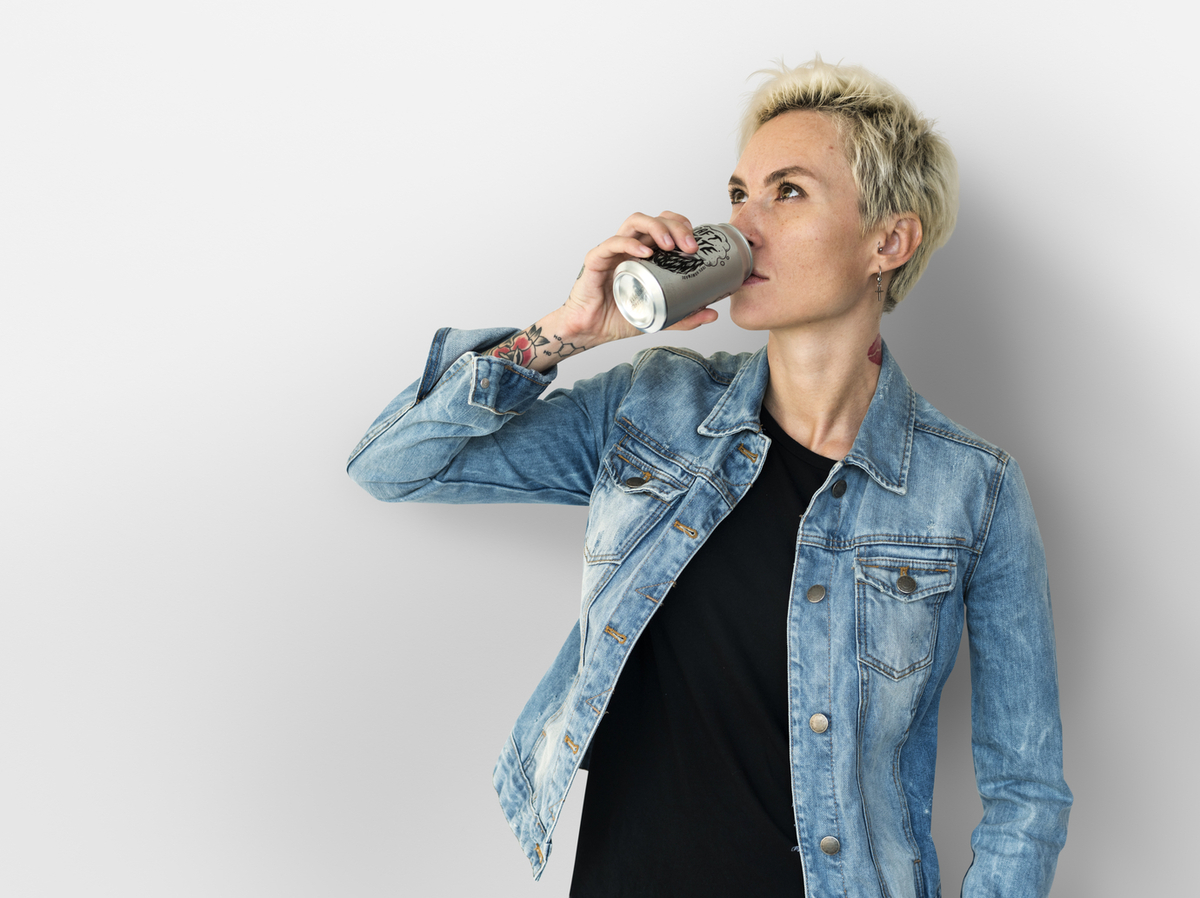Energy drinks have a surprisingly long and deceptive history. Most of the earliest energy drinks were actively marketed as medicinal products. Lucozade was, for instance, offered up as a beverage that would speed up hospitalized patients' recovery in the late 1920s. This trend continued in Japan and other Asian countries in the 1960s, when energy drinks containing herbs were passed off as medicinal tonics.
Today, we all know that energy drinks are pumped full of sugar and caffeine — that's how they're able to offer that quick boost. We're also, quite frankly, perfectly aware that that stuff can't possibly be healthy. Despite that, energy drinks very much continue to appeal not only to exhausted students studying for exams or tired workers who just need to get through a long day, but also to active athletes.

How do the ingredients commonly found in energy drinks impact your health?
From ginseng to bitter orange, and from added vitamins to amino acids like carnitine, each energy drink has its unique selling points. Two important ingredients form the foundation on which the rest of the drink is constructed, however, and those are sugar and caffeine — in large amounts. That's true regardless of whether you are consuming "ordinary" energy drinks, which tend to come in 16-ounce cans or bottles, or so-called energy "shots", which are more potent and packaged in two-ounce doses or thereabouts.
Because there is no federal mandate to declare the precise amount of caffeine present in each energy or sports drink in the United States, and the same holds true in many other jurisdictions, you might not actually easily be able to tell just how much caffeine is present within your sports drink or concentrated energy shot. However, 16-ounce energy drinks tend to contain anywhere between 70 to 240 milligrams of caffeine, while a tiny energy shot may be packed with as much as 200 milligrams all on its own.
The FDA warns that, while most healthy adults generally aren't going to suffer any negative health effects if they keep their daily caffeine intake to 400 milligrams or less, more than that can cause jitters, a rapid heart rate, headaches, nausea, and even mental disturbances. If you drink more than one energy drink a day — and especially if you also enjoy coffee — you are exceeding safe limits.
Some people who rely on energy drinks may not know that guarana, a stimulant derived from a Brazilian shrub that's incredibly popular in sports drinks, is indeed a form of caffeine too. This fact makes increases the total caffeine content of your guarana-infused energy drinks a fair bit.
How much sugar would you find in a typical energy drink? Well, although this varies, it is not uncommon for 16-ounce cans to feature a grand total of 54 to 62 grams of added sugars. The American Heart Association strongly advises men not to exceed 36 grams a day, while most women should not get more than 24 grams. Yes, that means that you're increasing your risk of heart disease and obesity if you even consume a single energy drink every day.
Besides these two "baddies", it's important to note that the taurine present in many energy drinks has been linked to worsened mental health problems in individuals with prior diagnoses in this realm.
OK, I know energy drinks are bad — but they're not that bad, right?
It is true that a significant minority — around 40 percent — of people who have to be admitted to hospital after using energy drinks combined them with alcohol or illicit drugs. That still leaves the other 60 percent. In other words, regular energy drink consumption can be so bad that it might just earn you a trip to the ER.
It is now increasingly popular to mix energy drinks (stimulants) with alcohol (a depressant), especially among college students and other young people. This combo can have dangerous consequences, as the caffeine changes the way alcohol acts on your system. People who have been drinking alcohol-infused energy drinks are more likely to drive drunk, engage in binge-drinking, and suffer injuries while intoxicated. They also have higher odds of falling victim to sexual assault.
Do energy drinks boost athletic and academic performance?
The sugar and caffeine in energy drinks can definitely improve your mental alertness and speed up your reaction time. They can also temporarily help you stay awake for longer. However, these solutions are short-lived. Chugging energy drinks and sports drinks will not improve your academic performance as a student. In athletes, some studies show that they do boost your endurance, but not your muscle strength.
Those people who truly simply want to improve their health and hydration, and use energy drinks for the added vitamins and electrolytes, are better off simply eating well and perhaps consulting their doctor about taking nutritional supplements. Energy drinks' popularity is in large part the result of highly misleading marketing, and to protect your health, it's important not to fall for these claims.
- www.nccih.nih.gov/health/energy-drinks
- www.fda.gov/consumers/consumer-updates/spilling-beans-how-much-caffeine-too-much
- www.hsph.harvard.edu/nutritionsource/carbohydrates/added-sugar-in-the-diet/#:~:text=The%20AHA%20suggests%20an%20added,comes%20from%20eating%20added%20sugar.
- www.tandfonline.com/doi/abs/10.3109/15563650.2013.820310
- digitalcommons.wku.edu/cgi/viewcontent.cgi?referer=scholar.google.com/&httpsredir=1&article=1782&context=ijes
- www.cdc.gov/alcohol/fact-sheets/caffeine-and-alcohol.htm


Your thoughts on this